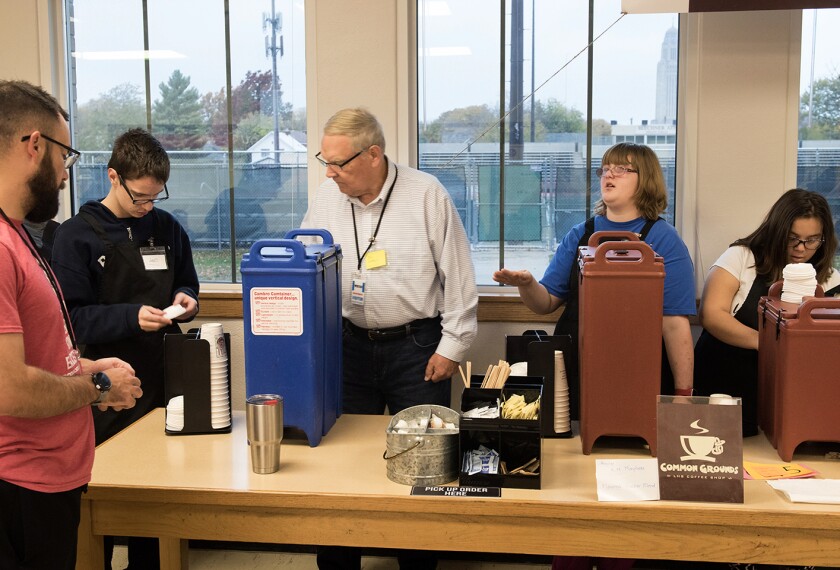School districts are allowed to refer to a student’s disability or special education status on report cards, but they should generally refrain from such notations on student transcripts, according to new guidance released by the U.S. Department of Education.
The Oct. 17 guidance letter, from the department’s office for civil rights, or OCR, is intended to clear up a source of confusion for some educators, who have worried that referring to a student’s disability in any way on report cards or transcripts could be a violation of that student’s privacy rights.
“Under federal disability-discrimination laws, the general principle is that report cards may contain information about a student’s disability, including whether that student received special education or related services,” wrote Stephanie J. Monroe, the department’s assistant secretary for civil rights.
Those report cards should also contain information about the child’s progress in academic coursework, consistent with standard report cards, she wrote.
Transcripts, however, are generally provided to people other than parents, Ms. Monroe noted in her letter. Because of that, schools must be more circumspect on what information they include on them.
“Information about a student’s disability, including whether that student received special education or related services due to having a disability, is not information about a student’s academic credentials and achievements. Therefore, transcripts may not provide information on a student’s disability,” Ms. Monroe wrote.
Patti Ralabate, an in-house adviser to the National Education Association on special education, said the guidance from the department “provides some really good clarity” on what had been a confusing issue for some educators.
A ‘Misinformation’ Problem
“There has been, for a very long time, some miscommunication and misinformation that was shared with teachers about what they could put on a report card,” Ms. Ralabate said. For example, teachers wondered if they could include a notation on a report card that indicated a student was using a modified curriculum, she said.
In a question-and-answer document that accompanies the guidance letter, the department indicates that such notations are generally permissible on a report card. Because districts often already note whether a student is taking an Advanced Placement course or an honors course, noting that a course is for special education students is not treating those students any differently from their peers, the document says.
Report cards could also include notations that a student may have received certain accommodations in a general education class.
However, transcripts should have less specific information on them, the Education Department indicated. For example, it is acceptable to have a notation on a transcript that a particular class had a modified or alternate curriculum. But a transcript should not indicate whether a student received special education services, or accommodations in a general education class. To do so would reveal that the student had a disability, the department says.
Similar concerns about privacy were raised by disability-rights advocates, who successfully pushed for the New York City-based College Board and Iowa City, Iowa-based ACT Inc. to stop flagging the scores of students who need extra time to complete the SAT and ACT college-entrance exams. Both organizations dropped such notations on the tests in the 2003-04 school year.
The most complex piece of information for schools to handle appears to be how to refer to a “certificate of completion” or similar document. A transcript may make reference to such a document in some cases, as long as it does not indicate that a student received special education or has a disability, the guidance letter says.




